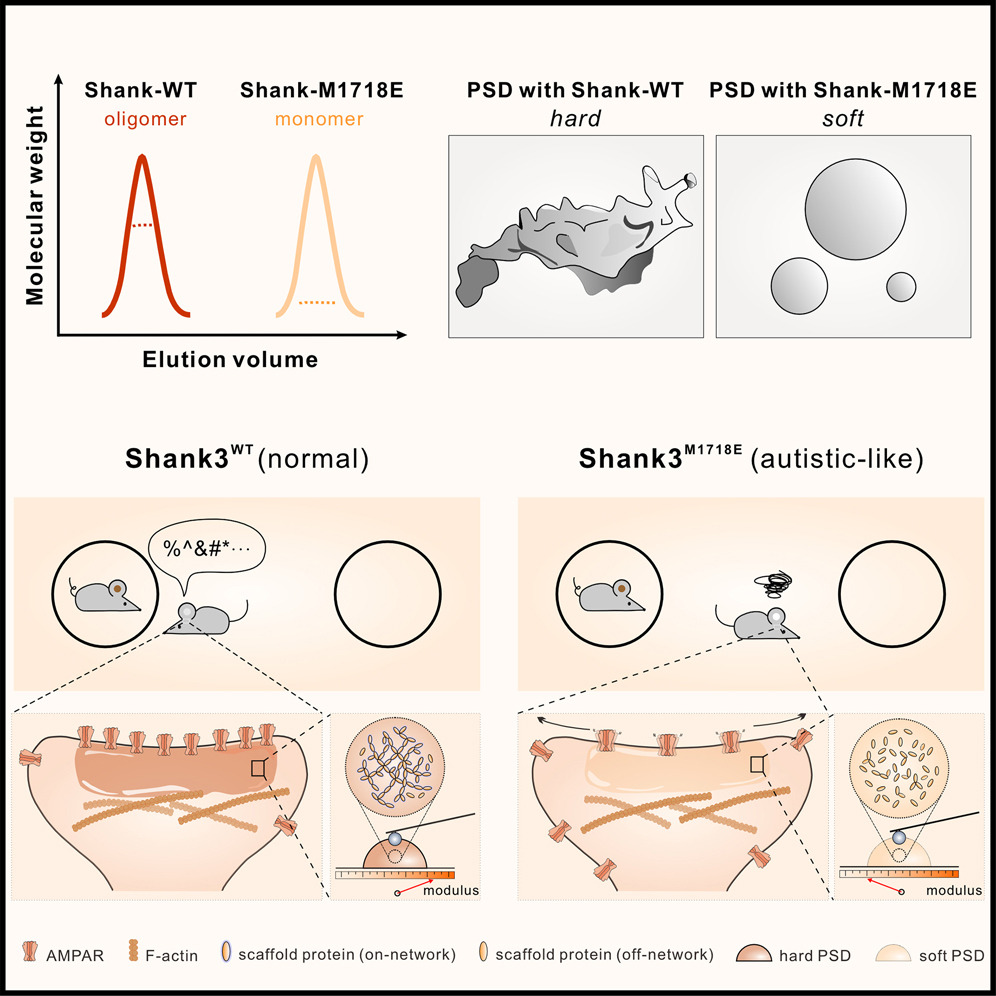AIDA-1/ANKS1B Binds to the SynGAP Family RasGAPs with High Affinity and Specificity.
2024.06.15Wang, X., Wang, Y., Cai, Q., & Zhang, M. (2024). Journal of Molecular Biology, 436(12), 168608.
AIDA-1, encoded by ANKS1B, is an abundant postsynaptic scaffold protein essential for brain development. Mutations of ANKS1B are closely associated with various psychiatric disorders. However, very little is known regarding the molecular mechanisms underlying AIDA-1′s involvements under physiological and pathophysiological conditions. Here, we discovered an interaction between AIDA-1 and the SynGAP family Ras-GTPase activating protein (GAP) via affinity purification using AIDA-1d as the bait. Biochemical studies showed that the PTB domain of AIDA-1 binds to an extended NPx[F/Y]-motif of the SynGAP family proteins with high affinities. The high-resolution crystal structure of AIDA-1 PTB domain in complex with the SynGAP NPxF-motif revealed the molecular mechanism governing the specific interaction between AIDA-1 and SynGAP. Our study not only explains why patients with ANKS1B or SYNGAP1 mutations share overlapping clinical phenotypes, but also allows identification of new AIDA-1 binding targets such as Ras and Rab interactors
- Recommend
-
2025-10-22
IQSEC2/BRAG1 may modulate postsynaptic density assembly through Ca2+-induced phase separation.
-
2025-08-22

Shank3 oligomerization governs material properties of the postsynaptic density condensate and synaptic plasticity.
-
2025-08-21
Modulating synaptic glutamate receptors by targeting network nodes of the postsynaptic density condensate.
-
2025-08-19
Current practices in the study of biomolecular condensates: a community comment.
-
2025-06-10
Phase separation instead of binding strength determines target specificities of MAGUKs.

